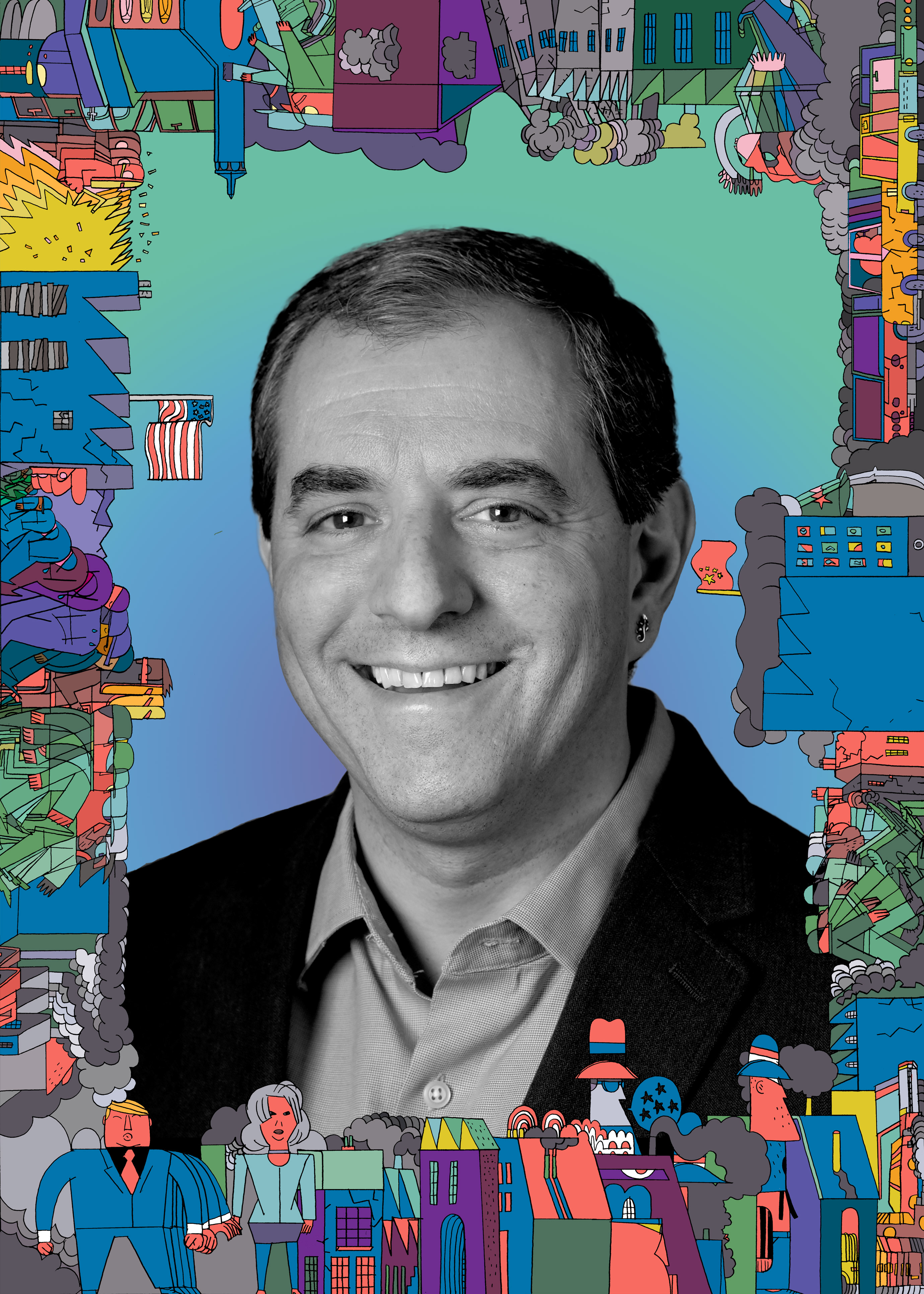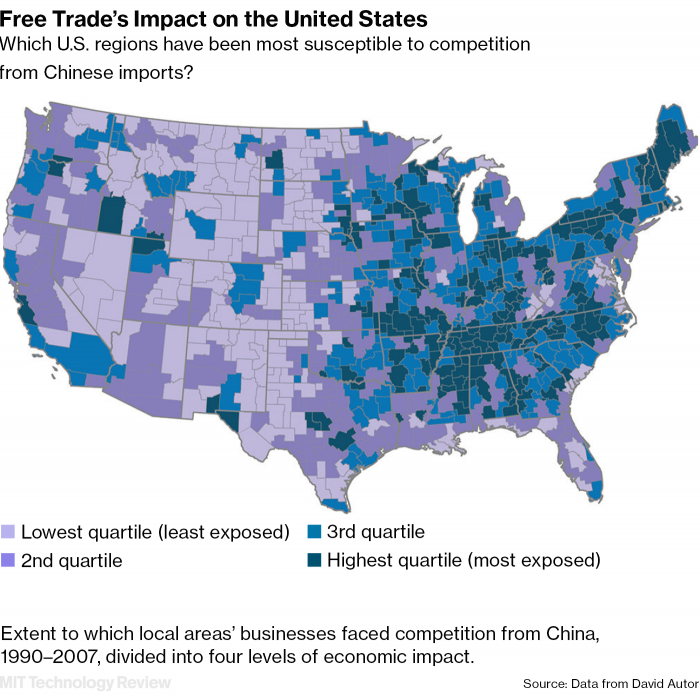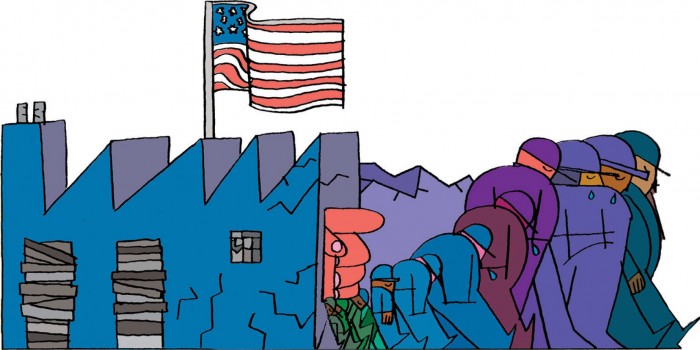The Trade-Offs of Free Trade

Until recently, most prominent economists saw international trade agreements as an unequivocally good thing. Trade deals, their thinking went, boosted GDP, brought consumers cheaper imported goods, and created only modest problems for American workers, who could find new jobs if their old firms failed in the face of low-wage foreign competition.
David Autor is helping to change that thinking. Autor, Ford Professor of Economics and associate head of the economics department, has produced a series of studies over the last several years showing that trade produces clear winners and losers. The winners include U.S. companies that can manufacture goods more cheaply, as well as tens of millions of American consumers who can buy some products for slightly less money. The losers are the workers who have watched their livelihoods disappear as their regions have been devastated by the departure of manufacturing jobs.
Moreover, Autor has found, the effects of trade have been concentrated in the last 15 years or so. That’s because trade with China—formalized after that country joined the World Trade Organization in 2001—has had a far greater impact than, say, the increased trade with Mexico that occurred after the North American Free Trade Agreement of 1994.
Most recently, Autor has argued that resentment over the ill effects of trade is helping to transform American politics. In areas hard hit by job losses caused by trade with China, he and his collaborators found in a new study, unhappy voters have since 2002 been electing “more extreme legislators, especially on the right,” exacerbating the polarization that has made Congress so dysfunctional. In areas dominated by non-Hispanic white voters, conservative Republicans and Tea Party candidates have made huge gains, replacing moderate Republicans and some Democrats, while districts in which people of color constitute the majority have swung further to the left.
“The politics of trade have gotten much uglier, because the consequences have now been really noticed,” says Autor. “Some people were really directly, adversely, strongly impacted. And we were not set up institutionally to help them adjust to that. We were too much in the position of saying, ‘It’s not a big deal.’”

As much as anyone in academia, Autor has persuaded people that the social impacts of trade agreements are a big deal. In other studies, including a 2013 paper, “The China Syndrome,” he and two frequent collaborators, economists David Dorn of the University of Zurich and Gordon Hanson of the University of California, San Diego, have quantified the trade-offs. Trade with China, which has increased its manufacturing capacity enormously in a short time, has cost Americans as many as 2.4 million jobs since 1999, the three economists have found—about one million of those in manufacturing. “Trade may raise GDP,” Autor says. “But it does make some people worse off.”
The methods Autor, Dorn, and Hanson have used to arrive at these conclusions are unique. They have closely scrutinized 722 U.S. metro areas known as “commuting zones,” looking at the shift in industrial production in areas that had been making the kinds of products China suddenly started exporting to the U.S. in the early 2000s. Through this approach, the scholars have established a new geography of trade effects. Imports from China have hit hard in former textile centers like Raleigh, North Carolina; furniture-manufacturing areas, including Tennessee; and many places that formerly manufactured shoes, leather goods, and rubber products, among other goods. Ranking all 722 zones by their exposure to Chinese manufacturing, they found that in a zone around the 75th percentile, annual income per adult dropped $549 more than it did in one at the 25th percentile.
As Autor is careful to point out, increased trade does increase aggregate wealth. U.S.-based companies like Apple, he notes, have grown partly because they can have their products made in China. And millions of Americans save a bit of money every year buying those phones, as well as cheap imported goods like T-shirts and assemble-it-yourself furniture. But the benefits and drawbacks of free trade are more unevenly distributed—and the magnitude of job losses more severe—than most economists and politicians previously realized.
The New York Times made the researchers’ study on trade and politics front-page news in April. Despite such attention, though, Autor is self-effacing about his work, joking that he’s had “multiple failed careers.” After starting college in the 1980s, he dropped out for a couple of years and took a job as a software developer in a hospital. He finished his undergraduate degree at Tufts in 1989, emerging with a major in psychology, an informal concentration in computer science, and a bit of ambivalence about his studies.
“I really loved the questions in psychology, but I really didn’t think the quality of the answers was very good,” Autor recollects. “I wanted to do something that combined the rigor of computer science with the public-good perspective of psychology.”
What exactly that would be, in 1989, was unclear. Driving across the country with his girlfriend after graduation, he heard a radio segment about a program called “Computers and You” at the famously liberal Glide Memorial Church in San Francisco. So Autor ended the road trip in that city, where he volunteered at Glide Memorial and wound up as education director of that very program, teaching computer skills classes to disadvantaged adults and children. “It was fabulously eye-opening, and I really got engaged in the question of how technology is affecting skills and opportunities,” he says. After a few years at Glide Memorial and similar work in South Africa, he attended graduate school in public policy at the Harvard Kennedy School, studying technology, the labor market, and inequality. To get his master’s degree, though, he had to pass graduate-level classes in statistics and economics.

“I had never taken any economics,” Autor says. “I literally didn’t know what it was. I thought it was just about the study of money.” Still, he recalls, “As soon as I got into the upper-level class, I thought, ‘This is the thing I’ve been looking for.’ Because this combines the rigor of the pure science with the social questions that I care so much about.”
Autor earned his PhD in 1999. His advisors steered him into the economics job market—and he felt “completely startled” when he landed a position in MIT’s heavyweight department. “It was like if you were playing baseball for the farm system, and all of a sudden you got called to the majors,” he says. But Autor was ready for the big leagues, publishing enough well-regarded papers to receive tenure by 2005. He has studied many subjects, including the relationship between technology deployment and job loss (he is not an alarmist about it) while delving into the gender gap in educational attainment, the value of temporary jobs to workers seeking long-term employment (it’s less than people think), and other topics.
A conversation with Hanson launched the research partnership about the effects of trade with China, with Dorn soon getting on board as well. Examining the effects of trade meant the economists were venturing into terrain where the profession had fixed views. “More than any other issue, economists have kind of been boosters for trade,” Autor says.
Indeed, Autor became an economist at a time when many in the field were concluding that technology, not trade, was principally responsible for costing workers jobs. But in the early 2000s, China entered the World Trade Organization, ushering in a new period of trade-based job losses. “Just as the debate closed, the facts changed,” Autor says. He adds: “We’re not criticizing the research people have done in the past … But we are saying [China’s rise] has to cause us to reëxamine the advice we give, and to think more carefully about how we quantify both the costs and benefits.”
Autor thinks protectionism would probably be disastrous. Instead, he advocates robust “trade adjustment assistance” for affected workers. This idea has been an “orphan” in policy circles, he says, adding that the current federal program is “stingy.” Displaced workers need training to get new jobs at comparable pay, but under the current system, they may disqualify themselves for such programs if they take menial jobs to pay the bills.
All told, Autor’s body of research demonstrates the same drive to do socially relevant work that he had coming out of college. For him, being a labor economist means studying the laborers, not just the labor. As he continues to study the nature of work today, he finds that he cannot ignore how strongly jobs affect people’s basic self-respect. His ongoing research is likely to amplify this: one recent working paper looks at the disintegration of two-parent households in areas jolted by trade effects. “Work is really wrapped up with identity,” he says. “Work is not just money for most people. They don’t fare as well when they don’t have a meaningful thing to apply themselves to.”
Keep Reading
Most Popular
Large language models can do jaw-dropping things. But nobody knows exactly why.
And that's a problem. Figuring it out is one of the biggest scientific puzzles of our time and a crucial step towards controlling more powerful future models.
The problem with plug-in hybrids? Their drivers.
Plug-in hybrids are often sold as a transition to EVs, but new data from Europe shows we’re still underestimating the emissions they produce.
Google DeepMind’s new generative model makes Super Mario–like games from scratch
Genie learns how to control games by watching hours and hours of video. It could help train next-gen robots too.
How scientists traced a mysterious covid case back to six toilets
When wastewater surveillance turns into a hunt for a single infected individual, the ethics get tricky.
Stay connected
Get the latest updates from
MIT Technology Review
Discover special offers, top stories, upcoming events, and more.